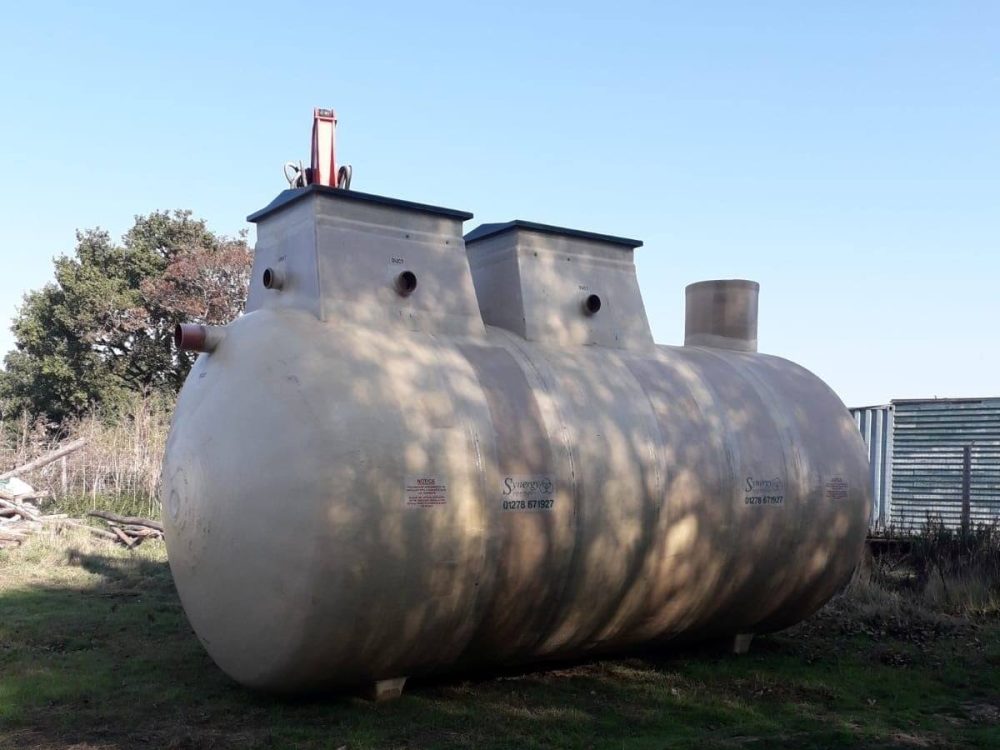When it comes to wastewater management for homes in rural or semi-rural areas, septic tank systems are often the go-to solution. These decentralised systems provide an efficient, safe, and environmentally friendly way of treating wastewater, helping you maintain hygienic and sustainable living conditions.
However, selecting the right septic tank for your home can be a daunting task, with various
factors to consider and multiple types of systems available in the market.
As a family-run business based in Northern Ireland, Burke Environmental Services specialises in septic and wastewater tank installations and specialist drainage solutions. Our years of
experience in the industry have provided us with unparalleled expertise in assisting homeowners in selecting the right septic tank for their specific needs. In this comprehensive guide, we will discuss the essential factors to consider when choosing the perfect septic tank for your home, including system types, legal requirements, and reliability, among others.
By the end of this guide, you will be equipped with the knowledge to make an informed decision
that strikes the ideal balance between cost-effectiveness and long-term viability.
As a responsible homeowner, understanding the importance of correctly selecting and installing a septic tank is critical. Choosing the right septic tank system directly influences the efficiency of
wastewater treatment, as well as the protection of your family’s health and the surrounding environment. This significance extends to the various steps involved, such as system design, location and sizing, all of which significantly impact the overall functionality and efficiency of your septic tank system.
Join us as we explore various types of septic tank systems available today, understand the legal regulations, and learn valuable tips on preventative maintenance requirements. With the assistance of Burke Environmental Services, we’ll guide you through each phase and help you make informed decisions that lead to a reliable, eco-friendly, and cost-effective wastewater management solution for your home.
Understanding Different Types of Septic Tank Systems
The first step in selecting the right septic tank system involves understanding the various types available in the market. Broadly, septic tank systems can be divided into two categories:
conventional septic systems and alternative septic systems. Conventional systems include gravity-fed septic tanks and pressure distribution systems, while alternative systems encompass
aerobic treatment units, sand filters, and mound systems, among others. Each system has its unique features, advantages, and limitations, which should be carefully considered before
making a decision.
Gravity-fed Septic Tanks
Gravity-fed septic tanks are the most common and traditional type of system, largely due to their simplicity and cost-effectiveness. These systems rely on gravity to discharge the effluent
from the septic tank to the drainage field. The solids settle in the tank, while anaerobic bacteria digest the waste. The treated wastewater then flows to the drainage field, where it percolates
into the soil. While these systems are relatively low-maintenance, they require a suitable slope and adequate space for installation.
Pressure Distribution Systems
In cases where a gravity-fed system is not feasible due to inadequate slope or space, a pressure distribution system can be employed. These systems use a pump to distribute the effluent evenly across the drainage field. This uniform distribution enhances treatment efficiency and prolongs the life of the drainage field. However, pressure distribution systems come with a higher installation cost and involve more complex maintenance requirements compared to
gravity-fed systems.
Aerobic Treatment Units (ATUs)
Unlike traditional septic tanks that rely on anaerobic bacteria to break down waste, aerobic treatment units introduce oxygen to facilitate the decomposition process by oxygen-dependent
microorganisms. These systems can achieve more efficient and faster waste treatment, making them ideal for sites with challenging soil conditions or limited space. However, ATUs require more frequent maintenance and higher energy consumption due to the need for an air pump.
Alternative Septic Systems
For properties with specific site constraints or local environmental regulations, alternative septic systems such as sand filters, mound systems, or constructed wetlands may be viable options.
These systems involve additional treatment steps, typically using engineered media or natural processes, to ensure optimal wastewater treatment. While they can be tailored to specific site
conditions, alternative septic systems generally carry higher installation and maintenance costs.
Key Factors to Consider When Choosing a Septic Tank
With a basic understanding of the various types of septic tank systems, it’s essential to consider specific factors before making a decision. Here are four critical factors that should be evaluated
when choosing the right septic tank for your home:
Site Evaluation
A thorough site evaluation is a fundamental prerequisite when selecting a septic tank system. Professional septic system contractors, like Burke Environmental Services, can assess crucial
factors such as soil type, water table depth, site topography, and available space before recommending an appropriate system for your property.
Local Regulations and Permits
Ensure that your chosen septic tank system complies with all local regulations, guidelines, and environmental policies. Obtain necessary permits and approvals from relevant authorities before
commencing any work. This will not only help to safeguard the environment but will also protect you from potential fines or legal complications.
System Capacity
The size of the septic tank system should be based on factors such as the number of occupants in your home, the expected daily water usage, and the size of the drainage field. An adequately
sized system will ensure efficient wastewater treatment, reduce the risk of system failure, and minimise ongoing maintenance costs.
Installation and Maintenance Costs When choosing a septic tank system, consider both the initial installation cost and the long-term
maintenance expenses. While some systems may have a lower upfront cost, they may require more frequent servicing or higher energy consumption, ultimately leading to higher maintenance
costs.
An Informed Decision with Expert Guidance
By considering the essential factors outlined in this comprehensive guide, you will be well-equipped to make an informed decision when selecting the right septic tank system for your home. It’s crucial to consider all aspects, including system type, site evaluation, capacity, and costs, while ensuring compliance with local regulations.
Looking for a trusted septic tank specialist for your home? Look no further than Burke Environmental Services! With our expert guidance, unparalleled industry knowledge, and commitment to environmentally friendly, cost-effective, and long-lasting wastewater
management solutions, you can have complete confidence in our ability to meet all your septic tank installation needs. Let’s work together to build a cleaner and more sustainable future for
everyone. Contact us today to schedule a consultation and start your journey toward a better, more efficient, and more sustainable home wastewater management system. Choose Burke Environmental Services and experience the difference of working with the best in the business!


